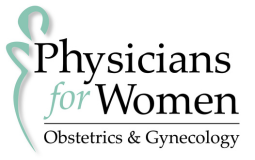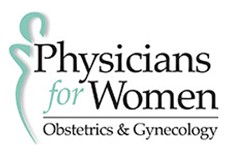In today’s evolving healthcare landscape, more families are discovering the unique benefits of midwifery care. A midwife professional offers a personalized approach to pregnancy, childbirth, and postpartum care that combines traditional wisdom with modern medical knowledge.
These skilled healthcare professionals provide comprehensive support throughout your pregnancy journey, focusing on both physical and emotional well-being. Whether you’re planning a home birth or hospital delivery, understanding the role of a midwife can help you make informed decisions about your care.
Understanding the Role of a Midwife
A midwife is a highly trained healthcare professional who specializes in supporting women through pregnancy, childbirth, and the postpartum period. We provide comprehensive care that goes beyond medical monitoring, embracing a holistic approach that considers your physical, emotional, and social needs. Midwives work alongside other healthcare providers to ensure you receive optimal care while maintaining a focus on natural, physiologic birth when possible.
The Different Types of Midwife
- Certified Nurse-Midwives (CNMs): Registered nurses with additional graduate education in midwifery. CNMs are licensed to practice in all 50 states and can work in hospitals, birth centers, and home settings.
- Certified Professional Midwives (CPMs): Independent practitioners who focus specifically on out-of-hospital births. They complete specialized training in natural childbirth and are experts in home birth safety.
- Certified Midwives (CMs): Healthcare professionals who hold a bachelor’s degree in a non-nursing field and complete graduate-level midwifery education. They provide similar services to CNMs but are currently licensed in fewer states.
- Traditional Midwives: Community-based providers who learn through apprenticeship and often serve specific cultural or religious communities. Their legal status varies by state.
Comprehensive Prenatal Care Health Services by Midwife
Prenatal care encompasses all the health care during pregnancy to ensure both you and your baby stay healthy. Midwives provide comprehensive care throughout pregnancy that includes regular check-ups, health monitoring, and personalized education. We focus on preventing complications while preparing you physically and mentally for childbirth and parenthood.
Regular Check-ups and Health Monitoring
- First Trimester (Weeks 1-12): Initial comprehensive health assessment, including medical history review and baseline measurements. We perform early pregnancy screenings and discuss nutrition and lifestyle modifications.
- Second Trimester (Weeks 13-26): Regular monitoring of fetal growth and maternal health indicators. Your midwife tracks important measurements and discusses any concerns while providing emotional support.
- Third Trimester (Weeks 27-40): More frequent visits to closely monitor your progress and baby’s position. We focus on birth preparation and creating your personalized birth plan.
Education and Birth Planning
- Nutrition and Exercise Guidance: Detailed recommendations for maintaining a healthy pregnancy, including appropriate weight gain and safe physical activities.
- Childbirth Education: Information about labor stages, coping techniques, and what to expect during delivery.
- Birth Plan Development: Collaborative creation of your preferred birth experience, including pain management preferences and emergency contingencies.
- Newborn Care Preparation: Education about breastfeeding, newborn care basics, and early parenting skills.
Risk Assessment and Medical Collaboration
Midwives are trained to identify potential complications early and coordinate with other healthcare providers when needed. We maintain ongoing risk assessments throughout your pregnancy to ensure appropriate care levels are maintained.
Common risk factors we assess include:
- Maternal age and pre-existing health conditions
- Multiple pregnancies
- Gestational diabetes and hypertension
- Fetal growth concerns
- Previous cesarean births
- Mental health conditions
The Midwife’s Role During Labor and Delivery
During labor and delivery, your midwife serves as both a skilled medical professional and a dedicated support person. We provide continuous monitoring of both mother and baby while offering emotional encouragement and physical comfort measures. Our presence helps create a calm, supportive environment that can contribute to better birth outcomes and a more positive experience overall.
Birth Setting Options
Your midwife can support you in various birth settings, depending on your preferences and medical needs. Each location offers unique benefits and considerations for your birth experience.
- Home Birth: Perfect for low-risk pregnancies, offering the comfort of familiar surroundings and maximum control over your birth environment. Your midwife brings all necessary medical equipment and maintains clear transfer protocols if needed.
- Birthing Centers: Provide a middle ground between home and hospital births, offering a home-like setting with additional medical resources. These facilities typically feature private rooms, birth tubs, and family-friendly policies.
- Hospital Setting: Combines midwifery care with immediate access to medical interventions if needed. Your midwife works alongside hospital staff while advocating for your birth preferences and maintaining a natural approach when possible.
Labor Support Techniques
- Physical Comfort Measures: Massage, counter-pressure, and position changes to help manage labor discomfort naturally.
- Breathing and Relaxation: Guided breathing techniques and visualization exercises to help you stay focused and calm.
- Water Therapy: Use of shower or birth pool for pain relief and relaxation during labor.
- Movement and Positioning: Suggestions for optimal fetal positioning and labor progression through various positions and movements.
- Emotional Support: Continuous encouragement, reassurance, and guidance throughout the entire labor process.
Emergency Recognition and Management
Midwives are trained to quickly identify and respond to emergency situations during labor and delivery. We maintain current certifications in neonatal resuscitation and emergency skills, while having clear protocols for hospital transfer if needed. Our experience allows us to distinguish between normal labor variations and true emergencies, ensuring you receive appropriate care while avoiding unnecessary interventions.
Essential Postpartum Care and Support
Postnatal care encompasses the critical weeks and months following childbirth, often called the fourth trimester. During this time, your body heals from pregnancy and delivery while you adjust to life with your new baby. Your midwife provides essential support and monitoring to ensure both your physical recovery and emotional well-being progress normally.
Postpartum Care Services Provided by a Midwife
- Physical Recovery Support: Regular check-ups to monitor healing, manage any complications, and provide guidance on self-care practices.
- Breastfeeding Assistance: Hands-on help with positioning, latch issues, and milk supply concerns; referrals to lactation consultations when needed.
- Emotional Health Monitoring: Screening for postpartum depression and anxiety, providing resources and referrals when necessary.
- Newborn Care Education: Guidance on infant feeding, sleep patterns, normal development, and basic health monitoring.
- Family Integration Support: Help with transitioning to parenthood, including partner involvement and sibling adjustment.
The Benefits of Having a Midwife
Personalized Care and Attention
Midwives typically spend more time with their clients during prenatal visits and labor compared to traditional medical providers. This allows us to develop a deep understanding of your needs, preferences, and concerns. Our appointments often last 30-60 minutes, providing ample time for questions and discussion about your pregnancy journey.
Lower Intervention Rates
Research shows that midwife-led care typically results in fewer medical interventions during labor and delivery. We support natural birth processes while carefully monitoring for any complications, leading to lower rates of cesarean sections, episiotomies, and other medical procedures when compared to physician-led care.
Holistic Approach to Health
Midwives consider all aspects of your well-being – physical, emotional, and social. We provide guidance on nutrition, exercise, stress management, and family relationships. This comprehensive approach helps support optimal health outcomes for both mother and baby.
Cost-Effective Care
Midwifery care often costs less than traditional obstetric care, while maintaining excellent outcomes. Many insurance plans cover midwifery services, and studies show that midwife-led care can result in significant cost savings through reduced intervention rates.
Evidence-Based Care
Midwives stay current with the latest research and medical guidelines in maternal care. We incorporate evidence-based practices into our care plans while respecting traditional wisdom. Our approach balances modern medical knowledge with time-tested natural techniques, ensuring you receive care that’s both safe and effective.
Continuity of Care
Unlike traditional medical settings where you might see different providers, midwives typically provide continuous care throughout your pregnancy, birth, and postpartum period. Having the same healthcare provider who knows your history, preferences, and concerns helps create a more comfortable and consistent care experience. This continuity has been shown to improve birth outcomes and patient satisfaction.
Empowering Birth Experience
Midwives prioritize informed decision-making and actively involve you in your medical care plan. We take time to explain all options, risks, and benefits, empowering you to make choices that align with your values and preferences. This collaborative approach helps build confidence in your body’s natural abilities and your role as a parent.
Conclusion
In today’s healthcare environment, midwives play an increasingly important role in maternal and infant care. Their unique combination of medical expertise and personalized support offers families a comprehensive care option that prioritizes natural processes while maintaining safety.
Whether you choose a home birth, birth center, or hospital delivery, working with a midwife can provide you with skilled, compassionate care throughout your pregnancy journey. As more families discover the benefits of midwifery care, this time-honored profession continues to evolve and adapt to meet the needs of modern families.

